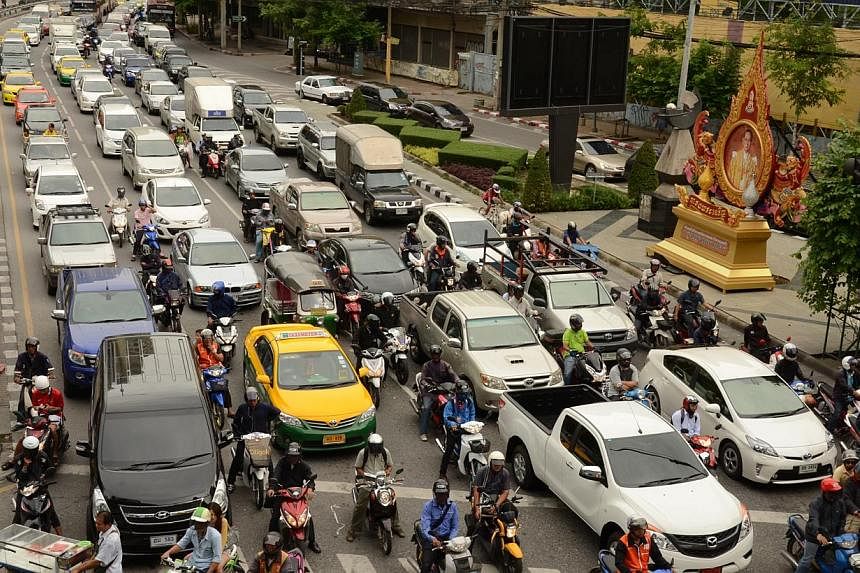BANGKOK (REUTERS) - Thailand's auto lenders have repossessed three times as many cars as they did a year ago as defaults soar in a flatlining economy.
The souring auto loans, accounting for a quarter of consumer borrowing, illustrate the growing debt burden shouldered by Thai households.
That is bad news for Thailand's military government, which is trying to pull the economy away from the edge as the country's key exports sputter.
With household debt rising to the equivalent of more than 80 per cent of the country's total output, Thai consumers simply do not have deep enough pockets to spend the country out of stagnation.
Leasing firms said bad auto loans had jumped 20-30 per cent this year, and were likely to hit 3 per cent of total loans.
Small and medium-sized banks are the most exposed.
"The worrying sign is that some clients in the provinces have less income than earlier expected," said Sakchai Peechapat, senior executive vice president of Tisco Bank.
The bank's total non-performing loans rose to 2.27 per cent of all lending at end-June from 1.9 per cent at end-March. Auto loans account for the bulk of its lending.
This year, Tisco has seized about 1,000 vehicles a month, compared with an average of 300-400 a month a year earlier, Sakchai said.
"It's challenging for the leasing business... We have not seen a clear sign of recovery yet. It may take longer than previously expected," said Surat Leelataviwat, acting managing director at Kasikorn Leasing, a unit of Kasikornbank.
Kasikorn Leasing's bad loans increased 20 per cent this year, and it rejected more than 10 per cent of loan applications, double the prior year, due to concerns about the high debt burden of borrowers, Surat said.
Non-performing loans in the Thai private consumer sector rose to 2.45 per cent of total loans in the second quarter to a four-year high, from below 2 per cent in late 2011, according to data from the Bank of Thailand.
Rising bad debt has hurt earnings growth of car loan providers such as Tisco Bank, Kiatnakin Bank and Thanachart Bank, 49 per cent owned by Bank of Nova Scotia.
Tisco, Kiatnakin and Thanachart are heavily exposed to auto lending, and some analysts have cut their earnings forecasts for the banks to reflect higher bad loan provisions.
They are due to report their quarterly earnings in the middle of October.
As banks sell seized cars that they have seized, used car prices have fallen 20-30 per cent, Tisco's Sakchai said, compounding losses for loan providers.
While banks are expecting overall loan growth of 5-6 per cent this year, auto loan growth has dropped 6-7 per cent to date and is unlikely to recover for the rest of this year, analysts said. Lenders have become more cautious due to the defaults.
The auto industry, accounting for about 11 per cent of Thai economic output, has been grappling with slow domestic sales since May 2013 when a government subsidy programme for first-time car buyers expired.
August's sales dropped 31 per cent on year, while production declined 27 per cent, prompting analysts and automakers to cut their forecast for car sales to 900,000-950,000 this year.
Kasikorn Research expected car sales to rise 16 per cent next year.
"You can see that market is very quiet. The economy is not good. People don't want to buy a new car if they are unsure of future income," said Boonrawd Suadmalai, owner of a second-hand car dealership in Bangkok.

